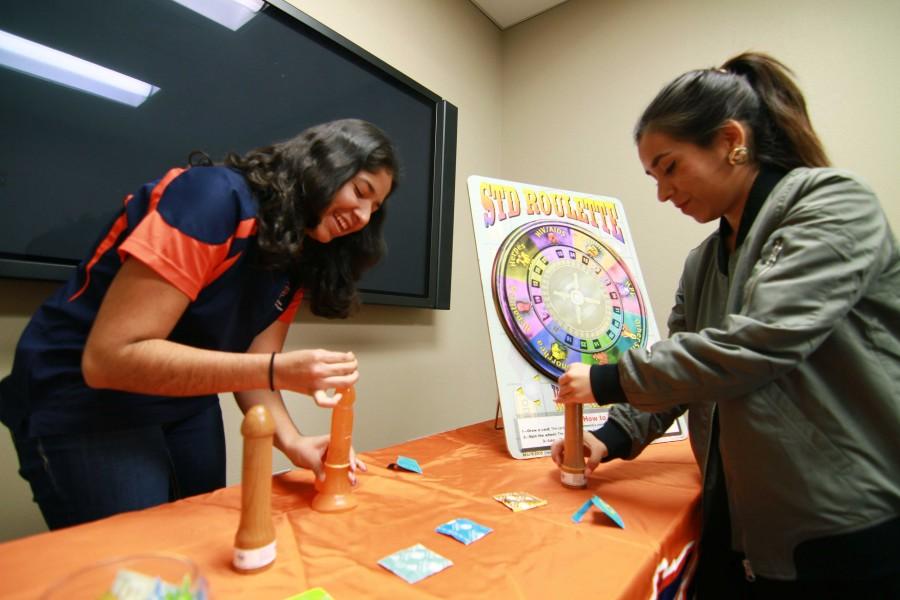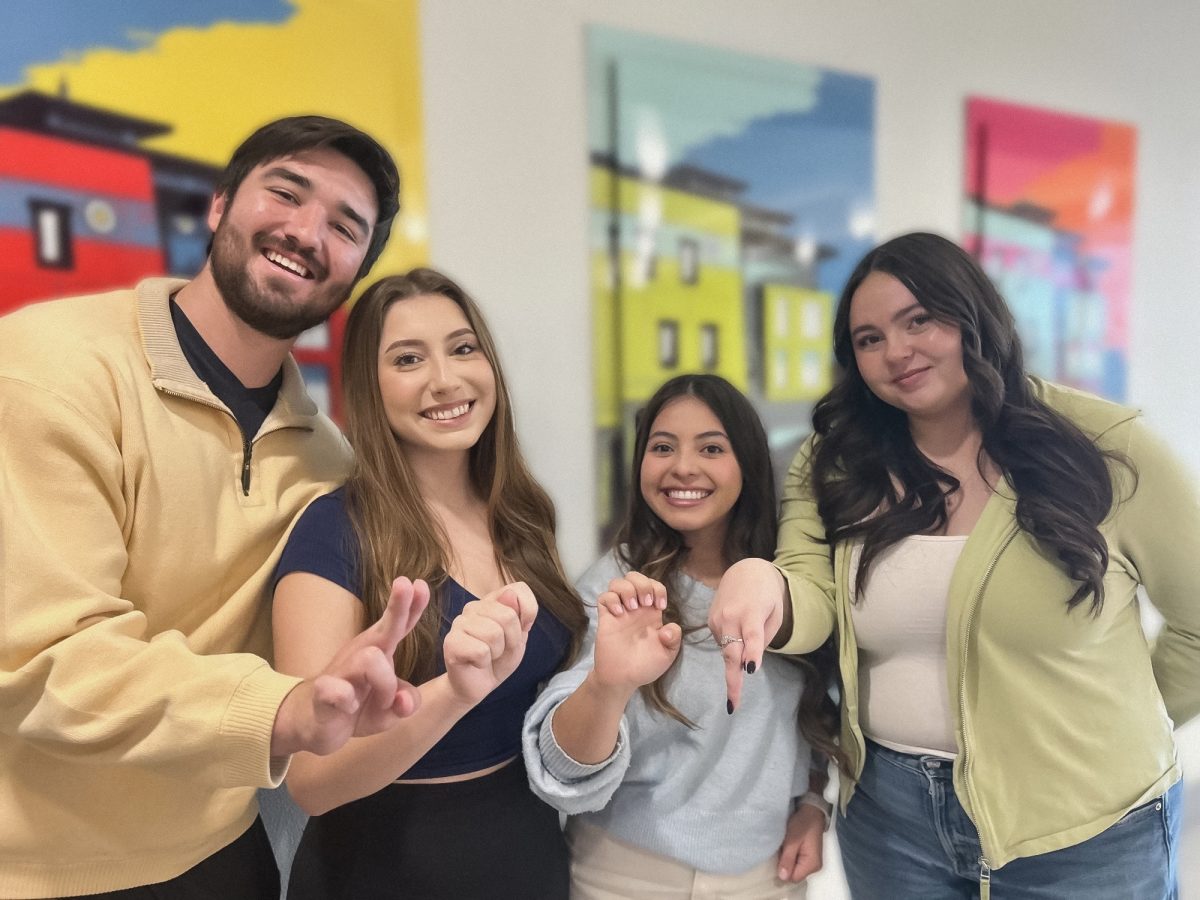The University of Texas at El Paso ranked 103 out of 140 in Trojan’s Sexual Health Report Card, an annual study sponsored by the makers of Trojan Brand Condoms and conducted by Sperling’s BestPlaces. The independent study ranks American colleges and universities according to the availability of sexual health resources on campus.
“At the top schools, what we’re seeing is a real focus on talking about sexual health,” said Bert Sperling, president of Sperling’s BestPlaces. “They’re tying to talk about sex as part of a real, natural, healthy living. They more they talk about it in the open, the less likely there is for unintended consequences.”
According to the report, when it comes to sexual health, the country is failing. Data published in the 2014 Center for Disease Control Surveillance Report, reveals an increase in reported cases of chlamydia, gonorrhea and syphilis. There were 1.4 million reported cases of chlamydia, an increase from 2013.
Youth between the ages 15 to 24 are the biggest at-risk population. Although they are the lowest portion of the sexually active population, they account for the highest rates of chlamydia and gonorrhea. Previous CDC estimates suggest they acquire half of the 20 million new STD’s diagnosed each year.
“The consequences of STDs are especially severe for young people,” said Gail Bolan, director of the CDC’s Division of STD Prevention, in a news release.
In El Paso, the rate of chlamydia is higher than the state average. According to data from the State Department of Health Services, in 2013 there were 128,036 chlamydia cases in Texas, a rate of 475 per 100,000 residents. While data from the Healthy Paso Del Norte reveals that El Paso’s chlamydia incidence rate at 598.9 cases per 100,000 residents.
“There’s definitely an urgency to talk about this,” said Corina Garrison, graduate assistant for UTEP Healthy Miners. “I feel people are a little resistant to talk about the topic.”
The current ranking represents an improvement for UTEP from the two previous years, of 127 and 122. The study ranks colleges based on how they measure on 11 criteria, including contraceptive availability, free or at cost condom availability, free or at cost HIV testing, sexually transmitted infection testing and sexual assault programs, among others.
Some of the things in place at UTEP that fall under the 11 categories measured by the Trojan report card include: STD testing, which is offered by the Student Health Center.They provide 8 different STD tests, the cost ranges from $20 to $36, plus a $15 charge for processing and handling; condom availability, which is provided for free at the student pharmacy, located inside the SHC, they are also provided for free by the Healthy Miner Sex Positive Peer Education Program at room 134 inside the Health Science and Nursing Building. Free female condoms and dental dams are also provided upon request in the Healthy Miner Sex Positive PEP office and UTEP Student health center depending on availability.
HIV testing, which is available through the SHC. The College of Health Science offers free, monthly HIV testing. The next scheduled HIV Testing Day is Wednesday, from 11 am to 2 pm on Dec. 2 at the College of Health Sciences and Nursing Building, Room 134.
Birth control, which is available at the SHC for $17.
Sexual assault awareness is being addressed by UTEP Do One Thing program. The program was unveiled in the summer and trains colleges, universities, civic and government groups, as well as other organizations about how to reduce and prevent violence.
The one category that is unfulfilled by UTEP is an extra-credit program.
However, Sperling said UTEP falls short in providing sexual-health information and resources, compared to other universities of its size.
“Other schools that we see of similar size have a much more active number of programs,” he said.
University of Oregon, who took the No. 6 spot, developed a free, mobile app, called SexPositive. The app follows a matches the potential STI risks, with selected body parts.
Sperling said students from other low-ranking universities, used the report card as a tool to talk with administration.
“This is a real tool students can use to start a dialogue with the administration, it (sexual health) doesn’t have to do a lot with money, but with a willingness to make a change,” he said.
Sperling said in order to improve, UTEP could increase wellness resources, workshops, programs and provide more sexual health information on their website.
Eileen J. Aguilar, University Wellness Program Manager, said the Healthy Miner Sex Positive Peer Education Program, should help increase sexual-health education on campus.
The HMSPPEP was established by the UTEP Wellness Program through a three-year grant under the Two Should Know initiative developed by the Paso Del Norte Health Foundation.
The HMSPPEP aims to educate students so they can make informed decisions about their sexual health by providing them with factual, medically accurate information. It focuses on safe sex, STDs, healthy relationships and sex positivity. The program employs two graduate assistants and 20 Healthy Miner peer educators. The peer educators receive training on sexual health, present workshops and table around campus to provide sexual health information to students.
The program emphasizes creating a sex-positive culture so that students feel comfortable approaching peer educators with questions about sex.
“The basis (of a sex-positive culture) is that sex is something natural, it’s positive, it’s something two people consent to. We want to make them feel comfortable in asking these questions,” Aguilar said. “We don’t want to scare students–a lot of programs in high school do that. We don’t want to do that.”
The program has only existed for a year. Garrison said peer educators table at least four times a week. According to their most recent progress report, in the past year, the Healthy Miners have conducted 482 workshops and spoken to 2,561 students.
“One of our goals is to empower students because we feel if they have more info, they’re able to make well-informed decisions,” Garrison said. “We’re trying to say sex is healthy, and it’s natural, and people should have the right info to make their own decisions when it comes to sex.”
Future plans for the program include a sexual health website that will be launched next spring.The site will provide a sexual health tool for students. Aguilar said they also want to work more closely with other departments, such as the Entering Student Program, to develop a Miner guide that could be incorporated inside the university textbook that will provide students with information about sexual-health resources on campus.
“We’ve identified some of the things we need to work on and now we can start working towards those goals,” Aguilar said.
Maria Esquinca may be reached at the [email protected].





